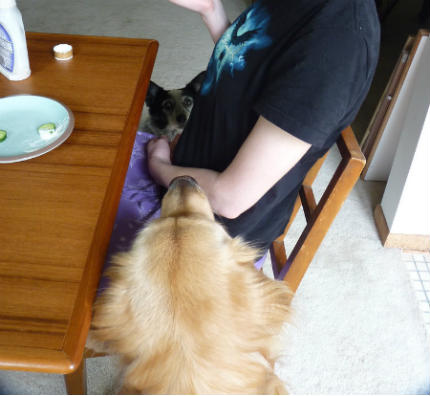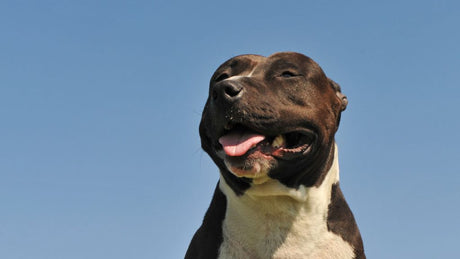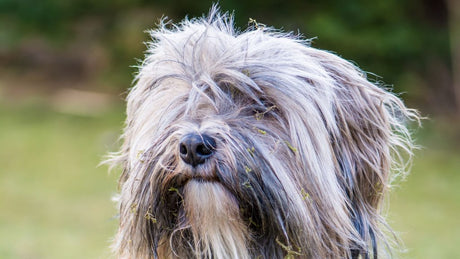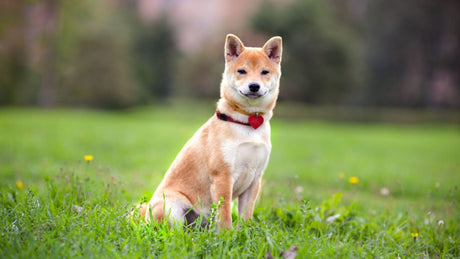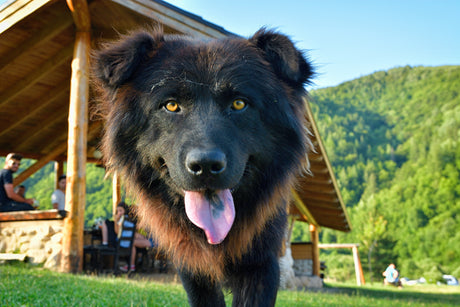This breed is not the best known in Belgium, but it is one of the friendliest and the best for beginners , very manageable and fits anywhere, such as flats or apartments.
- Size : 25 to 33 cm
- Weight : 3 to 9 kilos
- Hair type : thick, soft and straight
- Character : friendly and alert
- Health : good, with some hereditary diseases
- Life expectancy : 12 to 14 years
Origins of the Schipperke
When we see the schipperke we get the feeling that we are looking at a very small Belgian Shepherd and this is normal, since both breeds come from the Leauvenaar, the ancestor of both.
His strange name means little boatman in Belgian, the country where he comes from, and the reason for this way of calling him is because he went with the boatmen who crossed the Flanders canal , in charge of cleaning the boats of rodents.
He also stood guard, because although due to his size he doesn't scare anyone, he is very loud, so the owners of the boats immediately knew that there was someone lurking around.
There is already talk of a dog similar to this at the end of the 17th century, where the shoemakers of Brussels held exhibitions in which the animals were not judged, but rather the collars they were wearing.
Legend has it that the tradition of docking the tail, now prohibited in many countries, comes from an angry shoemaker who cut off his dog's tail because he did not win the contest, something that pleased the other participants who saw that the schipperke was very good like that.
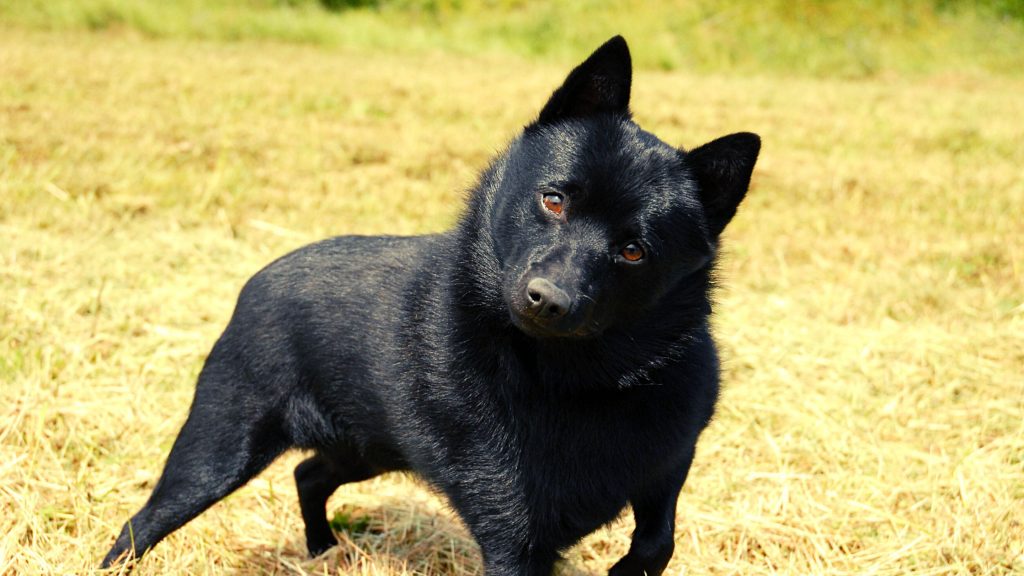
Schipperke Features
We are dealing with a small dog, but that does not mean that it is weak, since the FCI describes it as having a solid body and harmonious shapes .
Perhaps what is most striking is its appearance, since it looks like a black skunk with a cunning look , which is what makes us distinguish this breed at a glance, even if we see one of its specimens coming from afar.
The eyes are also very characteristic of an almond shape and express both kindness and tenderness, since nothing about a schipperke gives us the impression that it could be an aggressive animal.
The hair is very abundant, hard and of medium length on the body , shorter throughout the head area, of a very intense black color, although parts of a fairly dark gray are allowed in the undercoat.
Their most classic image is with their tail cut off, but we can now see them with it intact and they are even prettier. Furthermore, we must not forget that in many countries such as Spain this is prohibited, becoming a crime and resulting in the dog not being able to participate in exhibitions if it is cut.
Character of the Schipperke
He loves his owners and is always looking for the affection of his people, being very loyal to all his owners and respectful of the rules they impose on him.
He behaves great with children, and in fact he is one of the best dogs for families , since he loves to spend time with the little ones, hiding and playing fetch or doing the same with children, who immediately make friends. with him and they will worship him.
Even though he is very small, and has nothing to do against a thief, he is a good guardian, as he is very distrustful, which comes from his past on ships in Belgium.
He will guard objects if we ask him to, but we have to be a little careful with this, since he can do that with his toys and it will be difficult for him to leave them to us so we can have fun with him.
If we live in a rural area we can not worry about rodents , since it will kill everyone it encounters, becoming a natural and ecological rodenticide.
There is only one drawback and that is that he is a barker, which will cause problems in the cities, since the neighbors will soon complain.
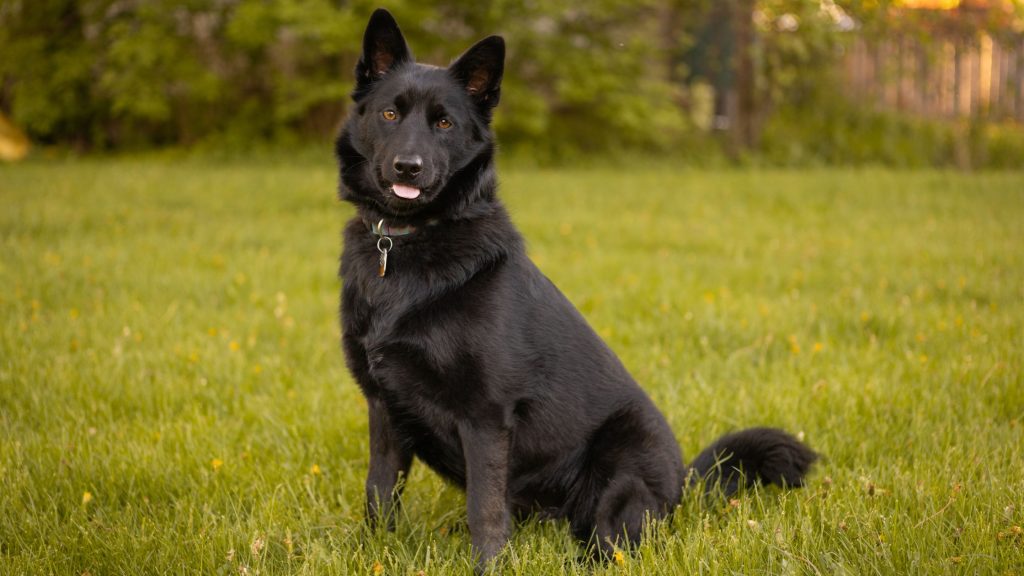
Schipperke Education
Training him is very simple and it will not take him much to learn the basic rules that every dog needs to master, such as coming to us if we call him, sitting, staying still, lying down, etc.
That is why it is a very appropriate breed for beginners, who will really enjoy teaching it and seeing how their dog responds immediately , something that is very edifying.
Furthermore, its small size makes it much easier to handle, although it is better that we do not take advantage of this when training it, for example by pulling hard on the leash if it does not pay attention, and that we use various positive training techniques.
Here it only has two weak points: barking and its love of hunting , which makes it difficult for it to live in a house with small pets, such as rabbits or chinchillas.
You can try to educate him to bark less, although it goes against his nature and we can do the same in order to control his hunting instinct, although this is even more complicated.
Regarding hunting small animals, it helps a lot if he lives with several when he is a puppy, at which time he can see them as playmates, although we should not take our eye off him.
Schipperke's health
He is in good health, so we will not always be at the vet if we follow some basic guidelines, which consist of seeing him at least once a year, giving him his vaccines and deworming him every three months.
In any case, there are a series of diseases that are specific or hereditary, whatever we want to call them, and one of them is patella luxation , which many dogs of this size suffer from and which can usually be corrected with medication.
He also suffers from eye problems, so we must check his eyes often and go to the vet if we see that he does not open one completely, the light bothers him, his eyes are red or he tears excessively.
He is no stranger to hip problems and there is always the possibility of developing dysplasia , something that can be avoided if we buy our specimen from an accredited breeder, who gives us proof that his parents and grandparents are free of this disease.
Schipperke care
Despite what it may seem like because of its hair, it does not need too many brushings and is content with two a week , in addition to a bath from time to time if we see that it is very dirty.
You have to be more careful with food, because the schipperke is quite gluttonous and therefore has a certain tendency to gain weight, something that can be prevented by exercising with it daily, which will be good for us too.
If despite this we see that he is gaining weight, it is best to give him a feed with a lot of fiber and talk to his veterinarian, assessing whether we should keep him that type of food as long as he lives, always purchasing it for small dogs.
Adopt a Schipperke
Outside of their country of origin it is difficult to find one on the street, let alone up for adoption.
Thus, if we want to adopt one, it is best to go to Belgium, where it will be more or less easy to find a specimen . Being within the EU, bringing it is very easy, since you will only have to come vaccinated and identified.
If we have the opportunity to own one, we should not think about it too much, especially if we live outside the city, where its barking matters little.
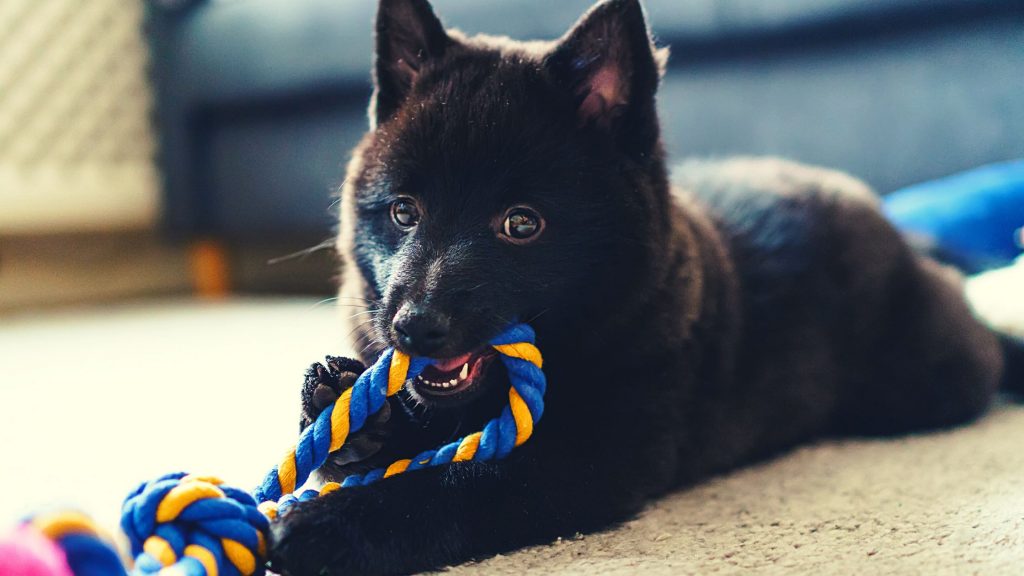
Other small dog breeds that may interest you:

